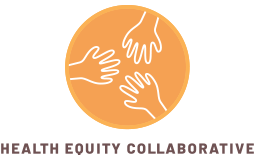13 Mar To protect America’s vulnerable against COVID-19, education and access are key
The novel coronavirus has quickly evolved into the greatest public health crisis facing our nation.
As Americans brace for a surge in positive diagnoses, it’s critical to consider how we can protect those communities that are too often disproportionately impacted in healthcare — minorities, non-native English speakers, those living with disabilities and rare illnesses, and the LGBTQ community.
These communities already face deep-rooted inequities and barriers in the healthcare system. The outbreak will only exacerbate those vulnerabilities if we don’t make a concerted effort to bridge the information and access gap.
Compared to non-Hispanic whites, minority Americans often report lower rates of insurance coverage. Even when they secure access to a provider, linguistic barriers can make treatment difficult. Nearly 60 percent of Hispanic adults have struggled to communicate with a provider because of a language or cultural barrier. And about 40 percent of non-English speaking Asian-Americans have reported similar communication problems with their doctors.
Experience with past outbreaks underscores the seriousness of this problem. During the swine flu epidemic, researchers found that poor access to health care contributed to increased morbidity in minority populations. In Oklahoma, for example, African Americans accounted for over half of all hospitalized cases, while just roughly a quarter were white.
Social stigma around Asian communities also jeopardizes access to quality care. COVID-19 doesn’t discriminate. To assume someone is at higher risk for infection based on the color of their skin isn’t just wrong — it’s dangerous.
Stigmatized groups suffer greater risk of social isolation, which compromises their ability to obtain medical care and resources in the event of infection.
Minority groups aren’t the only ones likely to suffer disproportionately. Americans living with disabilities are over 10 percent more likely to miss getting treatment due to cost, even if they have private health insurance. Many also struggle to access the care they need because of mobility issues.
Those with rare illnesses often report delays and errors in diagnosis, few treatment options, and limited support from providers. Those in the LGBTQ community could also be impacted disproportionately.
To combat the spread of misinformation and to ensure all Americans can get the help they need, it’s important to use the best tools available to us: education and access.
Taking simple precautionary measures best reduces the risk of infection. Wash your hands, avoid touching your face, cover your mouth when you sneeze, and stay home if you feel under the weather. For non-native speakers, the Centers for Disease Control and Prevention (CDC) has published guidelines in several different languages that detail these preventative practices.
In regard to access, drug developers are working around the clock to create a COVID-19 vaccine. The eventual vaccine will be available to everyone. But in the meantime, it’s crucial to stay on top of your vaccines and other medication to minimize the risk of secondary infections.
In learning the risks, and separating fact from fiction, we can ensure that no one community bears the brunt of COVID-19. Spread the word — not the bug.


